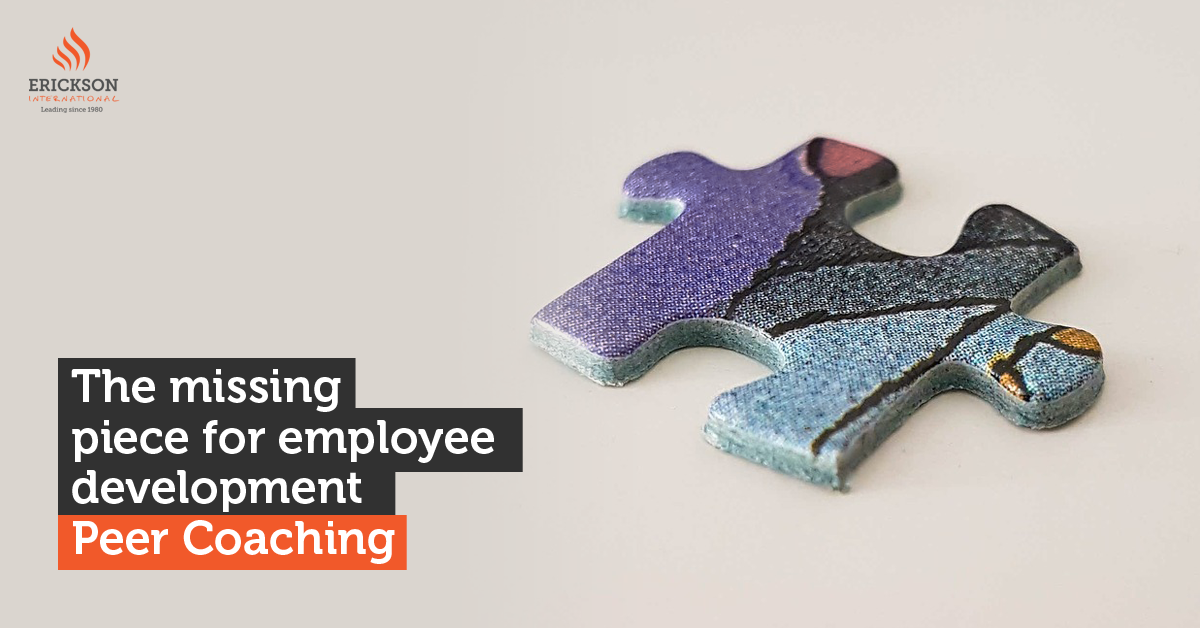
Employees can often get carried away with competitiveness, which can be hard to manage. Most of us want to nurture that competitive spirit in our companies and we often don’t consider it to be something bad. One thing that can often lead to different behavior and a new mindset in company employees is being coached by a colleague.
Peer coaching can:
- Lead to significant progress in personal and professional development, as well as improved cooperation
- Provide measurable progress in leadership skills in real time, through everyday challenges
- Lead to improved empathy and development of better interpersonal skills
- Help participants to it realize that feedback is a tool for development; this leads to long-term change in feedback perception
- Allow the ones who take part in coaching to coach one another.
Peer coaching in a work environment is designed according to the 5A model:
- Awareness refers to active attention, focus and clarity regarding the current situation and involves numerous methods that the coach can use.
- Acceptance refers to full consent on the areas which the colleague that is being coached wants to improve on.
- Action is identifying an action plan and executing it in order to achieve a goal.
- Acknowledgement refers to recognition, by interested parties, of the progress that a colleague has made.
- Achievement means that the colleague being coached and all interested parties agree that areas targeted for improvement should no longer be the focus of the improvement process.
In practice, there are two levels of peer coaching:
- Starting from Action and moving through Acknowledgement towards Achievement
- Starting from Awareness to and moving through Acceptance, Action and Acknowledgement to Achievement
Peer coaching: Level 1
At this level, upon recognizing an area for improvement, the person being coached:
- Partners with a colleague for the purpose of coaching
- Sets the area for improvement as the goal
- Carries out research on everything related to the goal: what makes them vulnerable to making no progress, as well as all the benefits of achieving the goal
- Strengthens themselves by recognizing their path to the goal
- Achieves the goal by using various options.
Explanation: Around 70-80% are aware that there’s something they should work on, and are aware as well as of the difficulties caused by outside distractions and insufficient support, accountability, discipline, progress monitoring and follow-up on their actions. A coach-colleague provides unequivocal support, making sure that the colleague being coached remains focused and responsible, with a high level of morale and motivation throughout the process.
Peer coaching: Level 2
At this level, the colleague being coached hasn’t identified what they should work on for two reasons:
- insufficient feedback (circular feedback, behavioral interview, performance review, etc.)
- low level of self-awareness (insufficient attention to ‘bottlenecks’).
At this level, the coach-colleague is focused on awareness and action. The coach-colleague should do the following:
- Ask the colleague being coached to provide self-assessment on target areas
- Establish communication with all interested parties and ask for feedback on:
– three things the colleague is good at and enjoys
– a couple of things that could be improved.
In this situation, it is important that target areas are properly selected. Otherwise, it will be very hard to manage the feedback coming from various people. Based on the information gained through feedback, the coach-colleague identifies a couple of areas that require improvement, shortens the list and ultimately determines the areas that could have the strongest impact.
At the end of the process, the colleague being coached determines a particular area to work on which they consider the most beneficial at that particular moment. After that, the colleague:
- Partners with a colleague for the purpose of coaching
- Sets the area for improvement as the goal
- Carries out research on everything related to the goal: what makes them vulnerable to making no progress, as well as all the benefits of achieving the goal
- Strengthens themselves by recognizing their path towards the goal
- Achieves the goal by using various options
Explanation: Coach-colleagues need to know how to approach feedback objectively. Dealing with feedback is the essence of leadership development. The coach-colleague is primarily focused on awareness and action and requires objective feedback, gives the colleague being coached their comments, presents them in a non-judgmental manner and facilitates identification of a goal and a change process.
Initiatives related to peer coaching can be started at either of these two levels. This type of coaching strengthens and expands the leadership capacity at all levels of organizations, and we hope that you will soon start applying it in your organization.
Want to learn more about coaching? Apply for our training “The Art and Science of Coaching”, follow the link for more information!